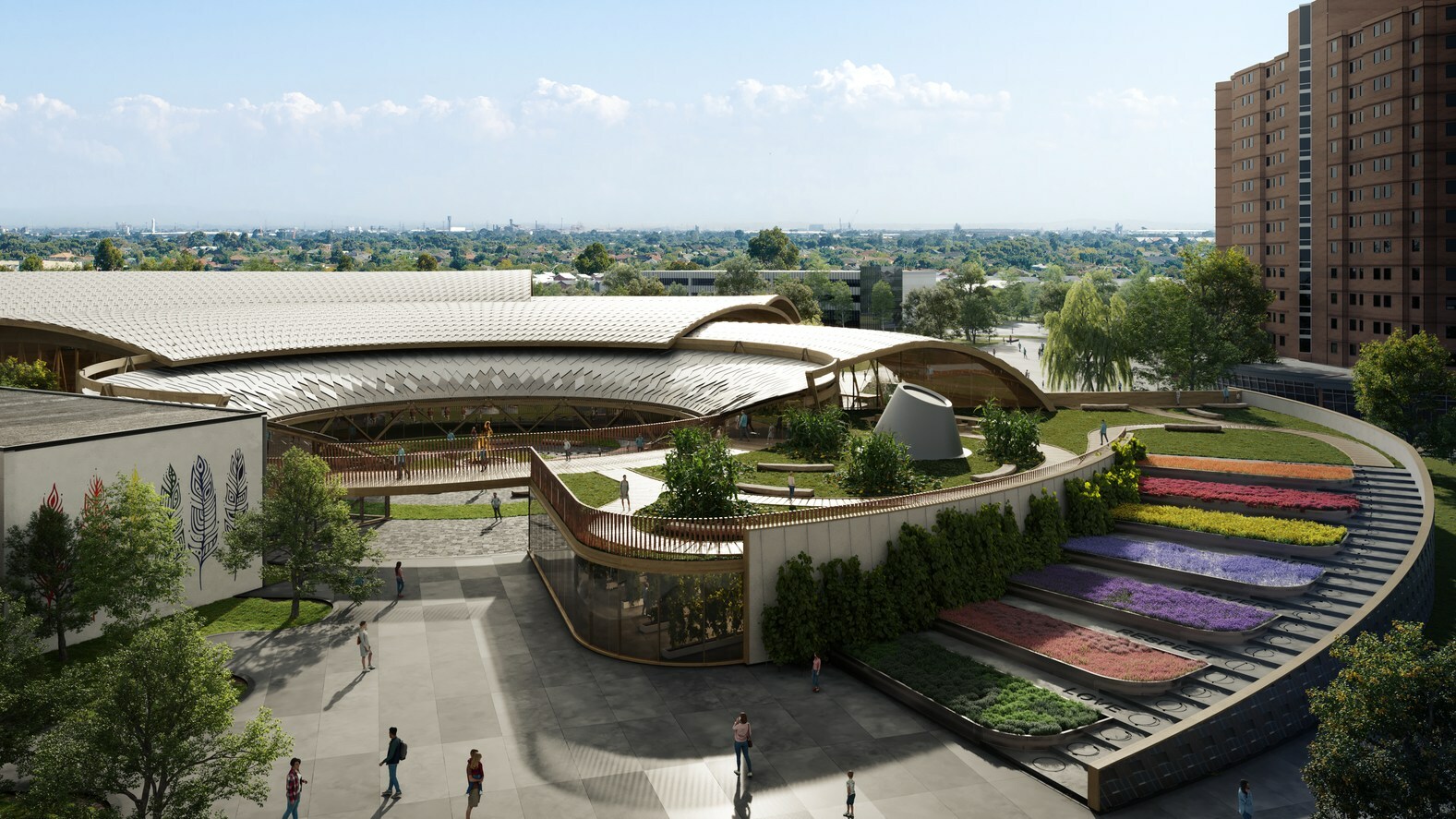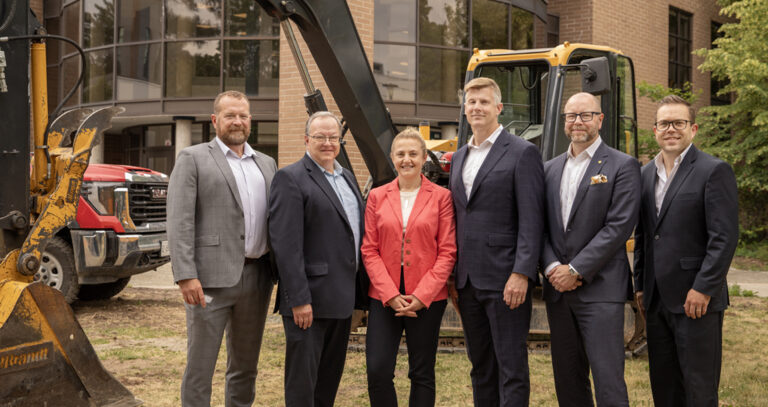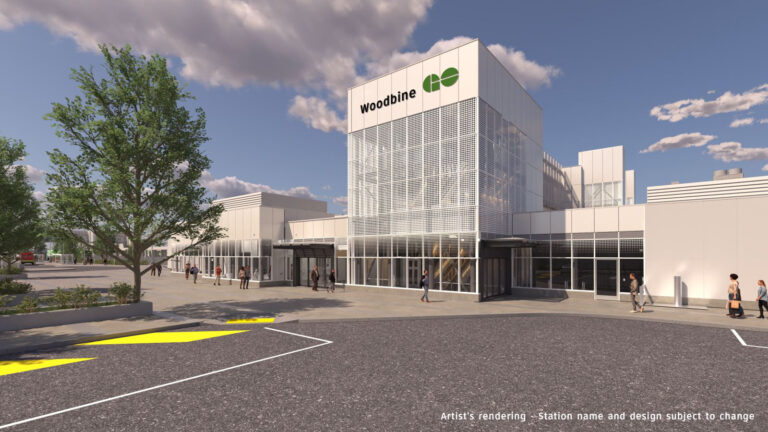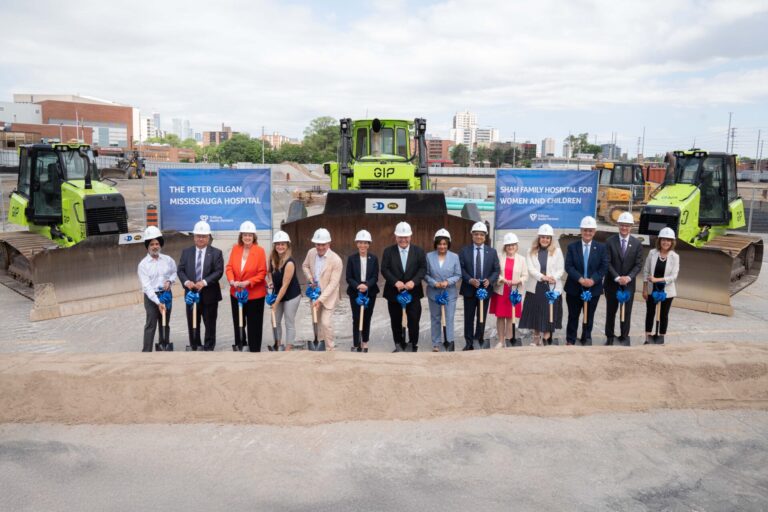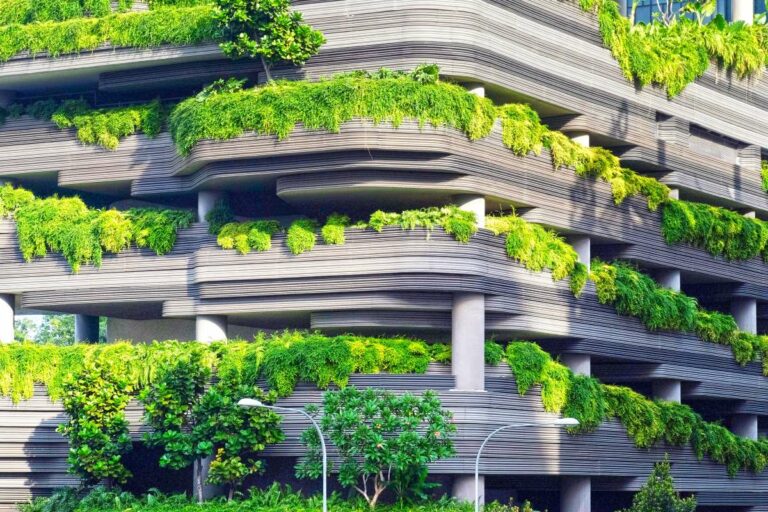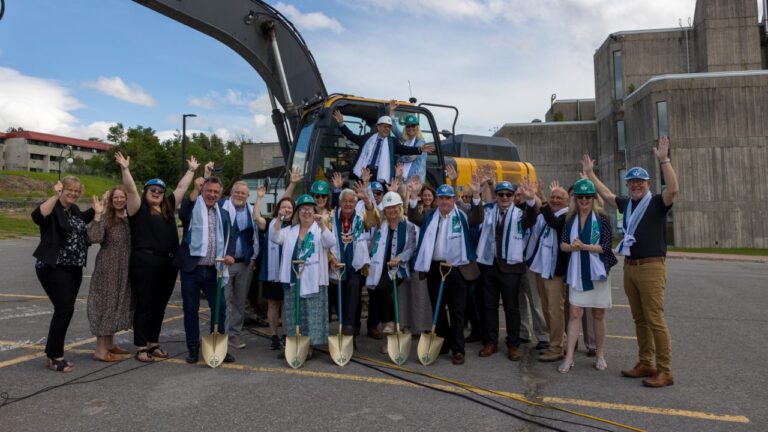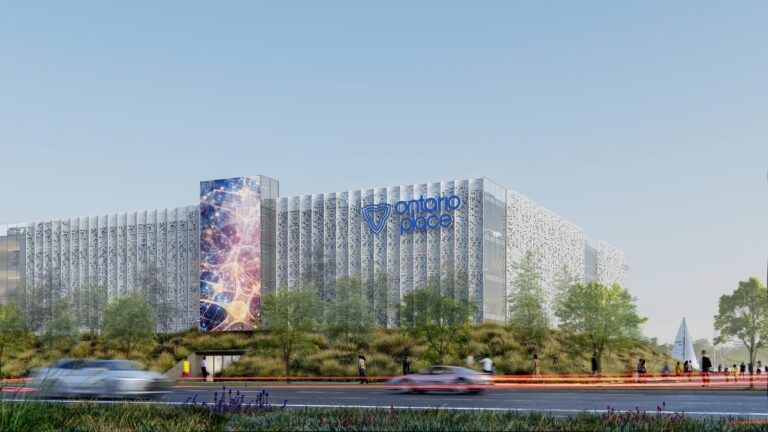Seneca Polytechnic announced a multi-million-dollar capital project to develop a complex for health and wellness that is infused with Indigenous design, sustainability and inclusion.
Drawing inspiration from the medicine wheel, the Health and Wellness Centre will be a destination for students and employees to support their physical, mental, emotional, and spiritual wellness.
On the pre-design of the building, Seneca is working with DIALOG, an integrated design practice known for building spaces that support collaboration, community and connectivity, and the Indigenous design firm Two Row Architect to incorporate Indigenous architectural form.
Seneca’s vision is to transform the decades-old Sport Centre at the east end of Newnham Campus into a dynamic multi-storey health and wellness complex that includes traditional medicines, counselling, recreation and varsity sports facilities. The Centre will also incorporate a new home for the Seneca Student Federation (SSF).
“The Health and Wellness Centre expresses Seneca’s commitment to a holistic approach to the physical, emotional, mental and spiritual elements of wellbeing for our students and employees. This will be a truly inclusive place, where everybody is welcome. We are excited by the opportunities to bring the entire community together in a beautiful new place that reflects our values, and we thank our students – current and past – for helping bring it to life through their generous contributions,” said David Agnew, president, Seneca Polytechnic.
The spherical shape of the design represents a drum circle. The drum circle symbolizes balance, equality, wholeness and connection. At the centre of the complex, the drum circle represents a source of positive energy, bringing with it a natural rhythm to the world around it.
Funding for the Centre is coming from Seneca, the SSF and the Student Athletic Association (SAA). The SSF and SAA contributions have been funded through capital fees contributed by students over many years.
The Centre will represent the next phase of development at Newnham Campus, complementing the award-winning LEED Gold-certified Centre for Innovation, Technology and Entrepreneurship, known as CITE, and the award-winning Odeyto Indigenous Centre.
“There are a number of big ideas that have inspired this design. One is the idea that this building will be an intimation of what an “architecture of reconciliation” could look like. And such a wonderful way of not only connecting and reconciling Indigenous and settler cultures, but also of providing a gateway for potential new Canadian students to imagine what the reconciled future Canada might look and feel like. Another is that this is intended to be a truly environmentally responsible building: with plans for net-zero carbon, and sustainable mass timber — and a wonderful showcase for both.” said Craig Applegath, DIALOG partner, architect.
Landscaped outdoor space surrounding the Centre will provide opportunities to engage with nature. Highlights include a central drum courtyard with fire pit, an extensive arrangement of native plants and trees, regenerative forest, earth mounds and a teaching and leisure rooftop terrace.
“The Health and Wellness Centre will be the heartbeat of Seneca,” said Erik Skouris, Two Row Architecture, design lead. “The outcome of this circular design signifying a drum demonstrates that the Centre will provide a holistic healing approach within the lives of the students based on Indigenous ways of seeing, understanding and being in the world that extends beyond the mere act of drumming. Many teachings across Turtle Island use the circle to represent balance and equality, wholeness, and connection. The circle is unbroken and made of equal, connected and infinite points. The Creator is at the centre of the courtyard, around which all living things – including students, engage. All programs radiate from this centre and have a special and direct connection to it. The drum voices our connection to all creation when we move and strengthens our bonds to each other when we drum together.”
Affirming the commitment to being the sustainable Seneca, a multitude of green building practices will be incorporated, including mass timber, rainwater harvesting, solar energy, geothermal energy, renewable building materials, green roofing, and designing for resilience and operational sustainability.
Subject to approval by the provincial government, demolition of current facilities is slated for winter this year, with an estimated building completion in 2026.
Featured image: Architectural renderings of the proposed design courtesy of Dialog. (CNW Group/Seneca Polytechnic)

